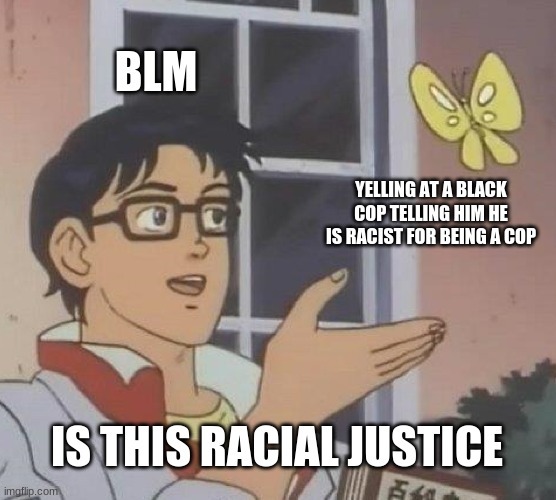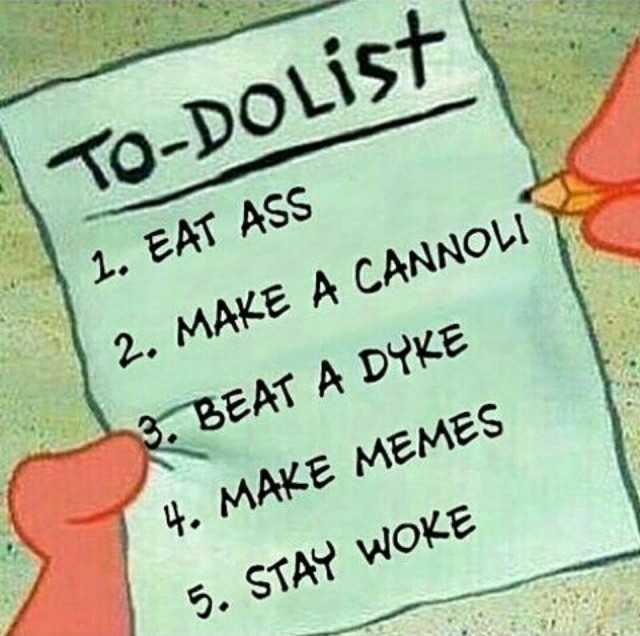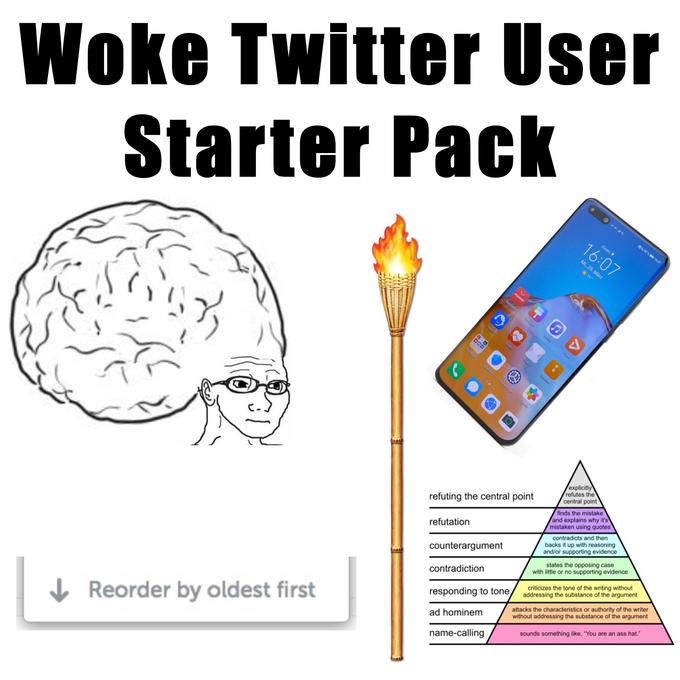In his program at the beginning of February devoted to the “American divide”, Alain Finkielkraut asks the following question to his guest Roger Cohen (head of the Paris office of the New York Times): “What exactly is a woke, and do you fear that this woke movement is growing too much and preventing America from reconciling?” (oh my!).
Cohen’s answer seems to me to be particularly relevant:
“If fighting for social justice in the United States means trying to fight for racial justice and for a society where what happened with George Floyd can no longer happen, I side with the woke, even though I am not from the same generation. But if being woke means: we do not tolerate, we do not accept other points of view, we are against open debate, and that we want to confine other opinions into silence, I am not woke at all… I think being woke for a 65 year old man is difficult”.
What is meant by woke? This is precisely the question I would like to be answered in this series of articles, to which I offer a long introduction here.
Apart from a few occurrences in Marianne, Causeur or Valeurs Actuelles (which do not, however, have the same editorial lines), this is a term that I did not see in the so-called ‘mainstream’ media until a few weeks ago. I had gotten into the habit of using it relatively often, including in my articles, and seeing it every day on Twitter. When we launched CTRLZ, one of the only articles available in the French press on the subject was this one from Le Monde and it was over 2 years old.
But in recent weeks, woke is ‘everywhere’ in these media. In Le Point, in a fairly biased but interesting survey by Le Figaro, on France Culture (where Brice Couturier does not hesitate to multiply the columns on the subject), on France Inter with a spicy column of Sophia Aram who speaks of “neo racism in woke sauce“, but also on Europe 1 which titled one of its programs “Welcome to Wokistan” (relatively embarrassing program in which the presenter wallows in his ignorance of the subject which he describes as “censorship movement” and expresses his contempt for the guest sociologist a little too strongly), and most recently in Le Monde via an interview with Pap NDiaye. The term is also used in the press for ‘millennials’, like Neon magazine, which devoted the dossier of its last issue to wokism, and even a very good article on militant purity and its excesses.
Finally, last weekend the JDD proposed a quick definition of the term by recalling the French origins of American woke speeches (philosophers of the French Theory). The newspaper was reacting to a very recent article in the Wall Street Journal entitled “Emmanuel Macron and the Woke” in which the American daily reports on the “””debate””” which has been unleashing political and media passions for several weeks on the government’s fight against a supposed ‘Islamo-leftism’ ((a term frequently used in France to accuse people on the left of being blind to Islamist extremism and overly worried about racism and identity – see article in The Local)) which would plague society and especially our universities. And it is indeed by the word woke that they sum up the affair: “He means in particular the habit of viewing most matters in racial terms — a core tenet of ‘wokeness’ — and his government wants educational institutions to eschew it”. Does this mean that the two terms can be compared? I don’t think so (at all), if only because of their origins. But in both cases, they can be used to disqualify a speech or a person, as we will see, and it must be noted that some people deliberately confuse the two, like Gabrielle Cluzel, Editorial Director of Boulevard Voltaire, on the Cnews set a few days ago: “Woke is a dominant ideological culture, it’s what we call Islamo-leftism, and it also includes all the theories around gender etc”.
This word, ‘woke’, which is popping up all over the French media space, was already widely used on social networks, in particular on Twitter, mainly to criticise and denigrate – more or less head-on and violently – those who it is supposed to designate. It must be recognized that it is a very comfortable catch-all category. When you use it, it allows you to designate a movement, a thought, even an ideology, without needing to precisely specify what you are talking about. And this is the whole problem.
Originally derived from African American Vernacular English (AAVE), to be woke – derived from awake – is to be ‘aware’ and therefore alert to injustices and all forms of inequality or oppression against ‘minorities’ (the term is also debatable). It is therefore a state of mind, a ‘posture’ in the face of societal issues and, by extension, a commitment. Carried and popularised by the Black Lives Matter movement, as we will see in more detail in our article on the origins of the word, it does not only designate anti-racist movements, but also extends to all progressive left-wing movements. The historian Pap NDiaye describes wokism as “a large militant triangle that mobilises part of the world’s youth”, to which are added anti-racism, the fight against global warming and feminism (extended to LGBTQ+ causes).
No wonder, then, that an intersectional vocabulary is often used in ‘woke environments’ (which we will surely know how to define better at the end of this series-investigation). A sociological concept from the late 1980s, intersectionality makes it possible to measure and take into account all forms of domination and discrimination that target the same person. It is now also used in the militant field, and is promoted by certain feminists, such as Rokhaya Diallo, for whom the notion aims to “reveal the plurality of discriminations of class, gender and race”.
In a column, initiated in particular by Thomas Chatterton Williams and published in Harper’s Magazine in July 2020 (A Letter on Justice and Open Debate), wokism is replaced by “the new left, born of the #metoo and Black Lives Matter movements“. This seems to me to be the most neutral and broadest definition.
Yet, as Pap Ndiaye notes, “the woke does not have a strong ideological backbone, but in its own way carries a radical discourse”. It is, moreover, this radicality that has given rise to a fair amount of criticism and a pejorative use of the term, accompanied by the birth of the anti-woke (which we shall also try to define).
These anti-woke are not a detail in our semantic quest for wokism because the term is performative and seems to say more about who uses it than what it designates.
Initially used in the first degree, the term has gradually undergone a semantic shift, and I have the impression that current usage is now much more widespread among the detractors of wokism than among the woke. This criticism can be very virulent, as in the case of the writer Seth Greenland (author of The Hazards of Good Fortune), who speaks of the “scourge of freedom of thought”, and in many others, which we will tell you about.
Accused of wanting to impose a new moral order and of holding sententious speeches, of conveying a Manichean vision of the world, and of using methods that weaken public debate (intolerance of divergent opinions, taste for denunciation and public humiliation, in particular), wokism is today decried, beyond the conservative camp (in the United States as well as in France), like a good number of the 150 writers, artists and journalists who have signed the forum of Harper’s Magazine (including Noam Chomsky and Salman Rushdie), who are worried:
“Calls to quickly and severely sanction anything perceived as a linguistic and ideological transgression have become commonplace. Even more worrying, institutional leaders, not knowing where to turn to limit the damage, are opting for hasty and disproportionate sanctions rather than thoughtful reforms”.
The American writer Thomas Chatterton Williams, who is at the forefront of this initiative, brings this ‘left-wing’ critical discourse to the French media [he has lived in France for 10 years]:

The excesses of wokism are also increasingly being denounced within its own ranks, in this episode of the podcast La Poudre, but also numerous testimonials on social networks.
On the internet, where humor and irony are intrinsically part of web culture, woke is also the object of mockery and a lot of second-degree (which one must find more or less funny depending on where one stands on the spectrum of wokism, it goes without saying), and many more or less inspired memes.
I have also seen countless Twitter and Instagram accounts flourish lately, like this ‘woke woof dog’ which looks for “the wokiest people” and ‘barks’ when it finds them, or the account of Titania McGrath, a very popular fictional character (600,0000 subscribers), created by the actor and satirist Andrew Doyle “to parody the progressive ideology of the English-speaking world” to whom he reproaches “a very simplistic world-view that reduces the whole world to good or bad, to ‘woke’ and ‘non-woke’, with no room for nuance”.
An interesting criticism that we could also return to him: don’t the anti-woke (of which Andrew Doyle could be an active figure) also participate in this new woke/anti-woke division, by multiplying the columns and tweets on the subject?
This pejorative and ironic use of the term is decried as an instrumentalisation by the right and the extreme right, who would have hijacked the original meaning of the word to use it as a weapon (against the woke) and as an insult, as noted by writer and journalist Afua Hirsch: “As is often the case with black innovations, overuse by the white mainstream killed off its authenticity. Today, the person using the word is likely to be a right-wing ‘cultural warrior’ [in reference to the culture wars, Editor’s note] angry at a phenomenon that lives mainly in their imagination.
“Now, woke has become a buzzword for right-wing hate preachers, it’s the new ‘snowflake’”, said a journalist from Stylist. To the point that some were already pleading, at the end of 2018, to stop using it. When others demand that its initial meaning not be diverted.
The word ‘woke’ is still used – including in the United States – in the first degree and in a relatively neutral way, in militant circles but also in the press (which some people moreover qualify as woke). It is also still used by journalists and researchers (still called intellectuals?). Guillaume Allègre (an economist at the French Economic Observatory), for example, explains the term’s use as follows: “If they use woke in a pejorative way, why not reappropriate the term?! Especially since the etymology is positive. I prefer woke to bobo [‘Bourgeois-Bohemian’, Editors note]”. It seems that it is also used to designate in a pejorative way the insincere woke postures of some people. Usages that we will not fail to explore in the company of linguists.
So to what subject does woke refer to? That of the new American and French left, or that of the excessive methods of these movements for social justice, which we are accustomed to simplifying with another catch-all term (cancel culture)?
Is it an ideology, a religion, a state of mind, a posture, a culture? Or an outright expression of a change of era in which woke would be “the cultural translation of a political shift in the world”?
Can it still be used in the first degree to designate a thought without being seen as an over-the-top reactionary that tries to discredit the word of those who work for more social justice? Why and how has the meaning and use of this term evolved, in the U.S and then in France?
What does this word tell about our societies and their evolution? Are we all condemned to choose our side between woke and anti-woke? (Personally, I would be hard-pressed because I think I’m both at the same time – or maybe neither one nor the other…).
Above all, is it a never-ending quest? Are woke and the woke really definable? Or is it that, as with the ‘bobo’ in its day, we are almost all someone else’s woke? Also, is there an (implicit) typology of wokism? I see a lot of different ones: radical wokes, skeptical wokes, fragile wokes, nuanced wokes, repentant wokes… and even sometimes anti-woke wokes!
Finally, how do you explain that this term is so widely conjugated? Wokism, then, but also wokistan (a pejorative term to designate the imaginary country of the woke) or its alternative wokeland (which I find much cuter and less nasty), woke-cracy (a neology invented by an Internet user), woke dictatorship or woke capitalism. A short wokabulary session will also be necessary.
In this series entitled “What is Woke”, CTRLZ aims to offer you a history of the woke by exploring the uses and evolution of this word which, although it has been particularly fashionable in the French media in recent weeks, remains relatively unknown to the general public.
[SERIES] WHAT IS WOKE? → 1. Editorial → 2. The origins (XXth - 2017) → 3. The cultural appropriation of a polysemous word → 4. The decline (2018 - 2021)



Leave a comment